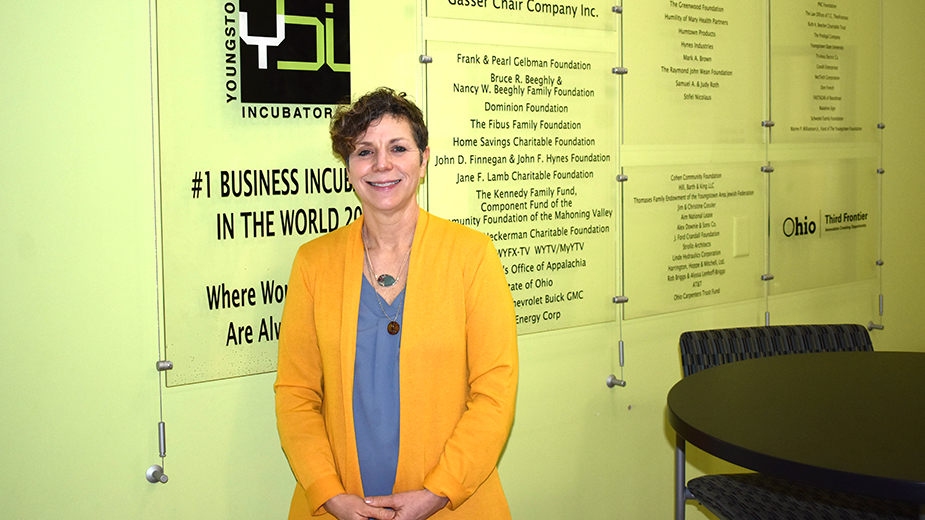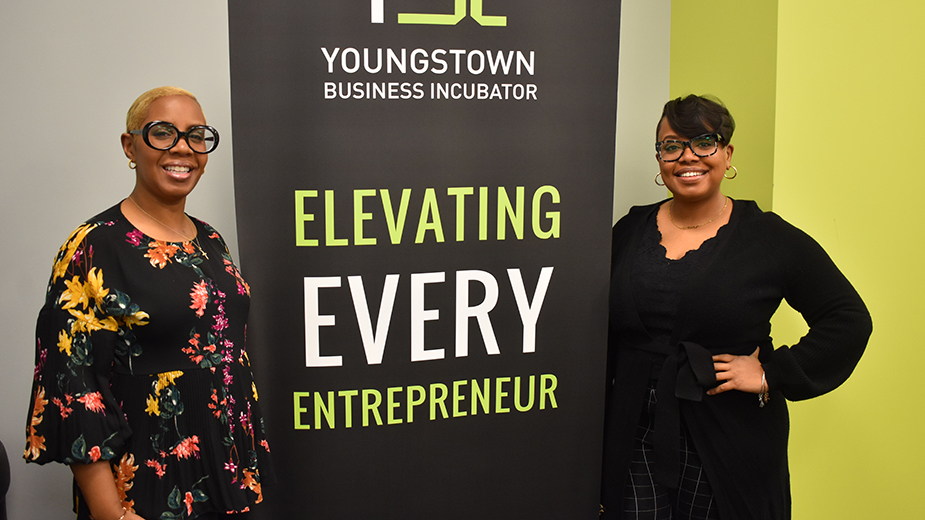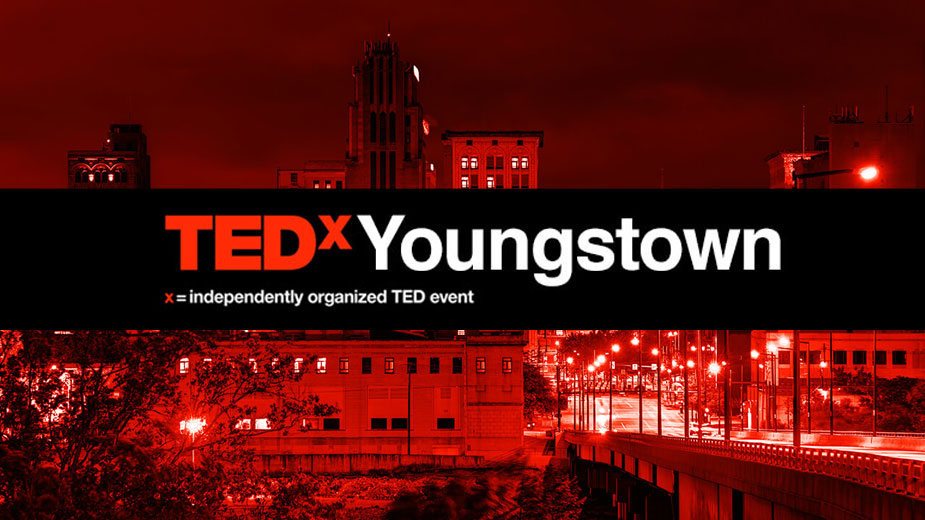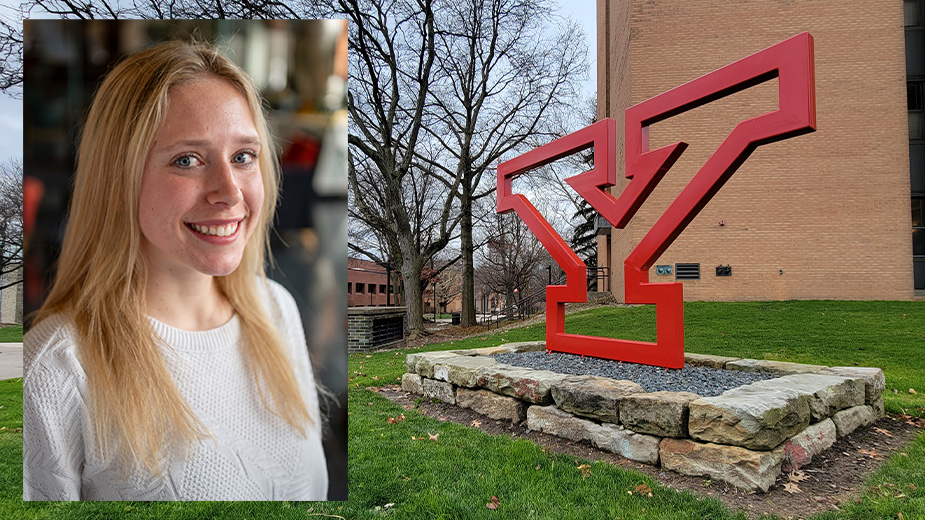YBI Rethinks Focus to Boost Deal Flow
YOUNGSTOWN, Ohio – The next great entrepreneurs to come out of the Youngstown Business Incubator might barely be old enough to drive. Or shave. Or play in Little League.
Many also likely will look different than the mostly white, predominantly male demographic that has largely dominated the business environment.
At least that’s the plan.
A new youth-focused entrepreneurship initiative to be introduced in March is just one component of a re-emphasis for the technology-focused incubator that will include strengthened efforts to create and help minority businesses as well as entrepreneurs more broadly and put more focus on advanced manufacturing.
All of this is taking place as the incubator staff works toward completion of a new strategic plan that YBI leaders expect to present to its board in the spring.
The COVID-19 pandemic changed every community and every organization, including YBI, says Barb Ewing, CEO. Adjustments need to be made to account for those changes, including the reality of dispersed workforces.
“We can’t continue to do the same things we have done and think we’re going to have the same impact on our community that we traditionally had,” she says. “We’ve got to look for new ways to build new programming that’s relevant to our community and still fulfills our mission.”
YBI serves approximately 75 portfolio companies overall, about a quarter of which are based at its five-building campus in downtown Youngstown. It operates programs that serve the 21 counties that comprise northeastern Ohio. Its primary mission remains nurturing companies so they will expand and prosper in the Mahoning Valley.
Many of YBI’s companies have managed to successfully pivot during the COVID-19 pandemic and some have even grown. But Ewing and Corey Patrick, director of YBI’s entrepreneurial services program, are concerned that deal flow – across northeastern Ohio but particularly in the Mahoning Valley – is slowing.
“We’re not seeing the same number of new companies come into the pipeline that we’d like to see. And those shifts have long-term ripples,” Ewing says. YBI can’t do what it once did to increase the flow of deals. Figuring out how to address that hurdle “is a problem in and of itself,” she says.
Toward that end, YBI wants to increase revenue and job growth among portfolio companies on the technology entrepreneurship side. And it is seeking new, innovative and creative ways to generate a greater flow of deals and get more people thinking about starting businesses, “especially technology businesses because they tend to be the ones that bring new dollars into our economy,” Ewing says.
Further, she wants to build programming to support the existing strengths of the incubator, she says.

The JumpStart Technology Entrepreneurial Signature Program – or ESP – is the core program of YBI. The incubator is looking to restructure it to have a greater impact.
“One of the key things we keep talking about as a staff and as a network is how we drive more deal flow and how we get more people to start a tech business,” Patrick says.
This includes targeting other YBI programs – particularly the Minority Business Assistance Center housed at the incubator and the new youth entrepreneurship initiative – to encourage participants to take their ideas and make them larger, as well as bring a technology focus to them.
The YBI’s efforts to strengthen its minority business assistance center and build capacity around youth entrepreneurship, particularly in urban centers, “is initially to help them understand the value of entrepreneurship,” Ewing says.
To that end, in March the incubator will host the first cohort of Launchpad, an entrepreneurship program aimed at inner-city youth ages 9 to 18.
Up to 25 students will participate in the first 15-week course. At least some of the initial participants will be drawn from students involved in a “no-code hackathon” sponsored by Case Western Reserve University.
The program is a way for YBI to provide services to a diverse population and, principally but not exclusively, to students of color in the Mahoning Valley, Ewing says.
The incubator and the community as a whole have not done enough “to address some of the systemic issues that we face,” she says.
“This is, we think, a great way to start to build capacity and build bridges and change some of the trajectories of our communities,” Ewing says.
The mission of the program “is to elevate our youth through creating that entrepreneurial mindset,” says Stephanie Gilchrist, director of the YBI women and youth entrepreneurship program.
“My goal is to teach our kids the [fundamentals] of entrepreneurship, give them that creative seed, and teach them the importance of ownership,” she says. Through the program, participants will also learn how to register to do business in Ohio and how to pitch their product. They also will receive financial literacy training.
Gilchrist says she identified a “missed opportunity” with students she saw both in her work at YBI and her role at Inspiring Minds Youngstown, which she headed before returning to YBI full time in January.
“It’s bigger than just them,” she says. The mission is to elevate youth by creating an entrepreneurial mindset that will lead to the creation of generational wealth that will affect their families and communities.
The Ohio Minority Business Assistance Center office at the incubator serves a seven-county region that stretches from Ashtabula County to the north to Monroe County to the south.
Last year, the office assisted 182 clients and provided 715 total counseling hours, according to metrics
YBI provided. It also helped with the creation of 50 jobs, retention of 605 jobs and access to $2.3 million in capital.
“The most important thing we can do at the MBAC is be a partner with people in the growth of their business. Sometimes the journey is short. Sometimes it’s long,” says Vern Richberg, regional director.
White women represent the center’s fastest-growing group of clients. About 65% of the center’s clients are women with children, he adds.
“We are looking at YBI’s existing programs and asking ourselves what we can do to bring out YBI’s mission and its vision to the community,” says Amy Reynallt, who is working with YBI on the strategic plan.
Reynallt is manager of HBK Manufacturing Solutions in the accounting and business consulting firm’s Canfield office. Work on the strategic plan update began last year but was paused because of the pandemic and its impacts on the community and the business world in particular.
As part of updating the strategic plan, YBI is working with focus groups composed of individuals involved with or who know about the organization. “Their insight has been helpful to get perspective of where our key strengths are,” Reynallt says.
“YBI wants to be at the forefront of innovation and technology and manufacturing advancement within the community. So we are looking at those areas and determining what we are doing right now,” Reynallt says. “How do we make sure we stay in that place versus sticking with just what we’re doing now and potentially falling behind?”
YBI, launched in 1995, adopted a software-centric focus in 2000 then broadened its purview to advanced manufacturing as a partner in America Makes, the federally funded manufacturing hub focused on additive manufacturing.
The incubator helps companies in their efforts to adopt the use of additive manufacturing as well as to pursue federal Small Business Innovation Research and Small Business Technology Transfer program grants, says Stephanie Gaffney, YBI director of advanced manufacturing programs.
It isn’t a “cookie cutter” approach, she emphasizes.
“We are spending quite a bit of time in working with companies on an individual basis to craft a unique solution that helps them integrate additive into their operations,” Gaffney says. “We are willing to work with them to figure out what best suits their needs internally and then create a program for them to learn the when, why, how to use additive successfully.”
YBI also is investigating other technologies that touch manufacturing, such as the industrial internet of things, cybersecurity, artificial intelligence and advanced logistics.
“As we’re able to identify resources to support those, there’s definitely a need,” Ewing says.
But, she concedes, “you can’t be both broad and deep in everything,” and additive manufacturing is where YBI has its deepest expertise within the advanced manufacturing space.
Pictured: Stephanie Gilchrist and Tanisha Wheeler are implementing a new youth entrepreneurship program.
Copyright 2024 The Business Journal, Youngstown, Ohio.



